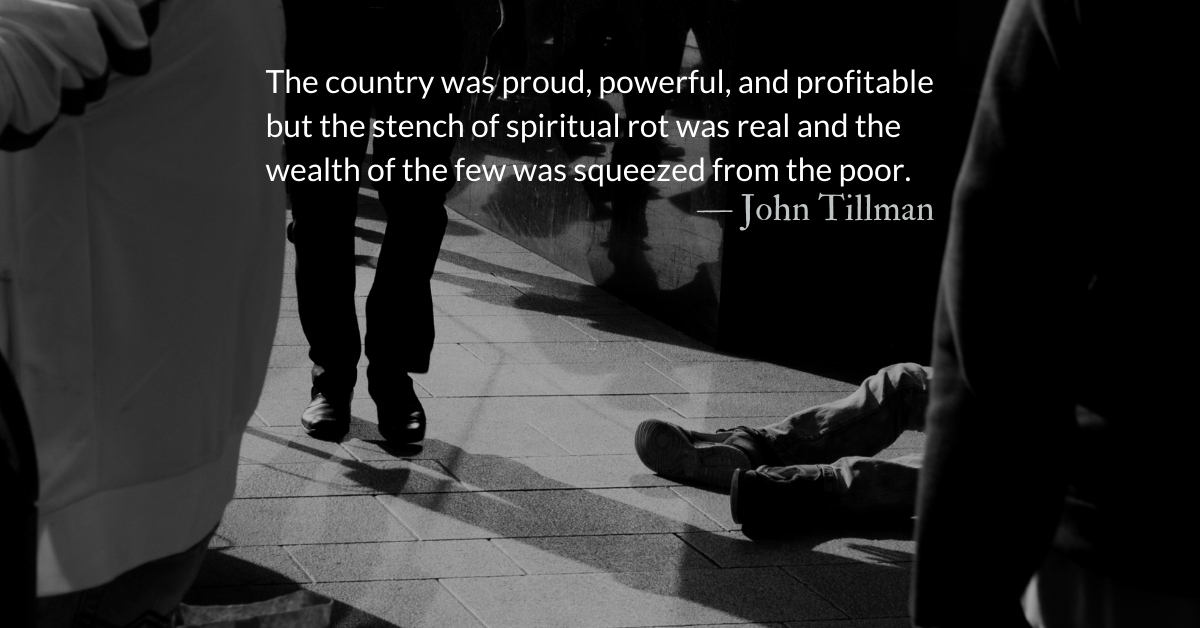Scripture Focus: Amos 1:3
3 This is what the Lord says:
“For three sins … even for four, I will not relent.
Reflection: Judgment, The Great Equalizer
By Erin Newton
Is there escape from God’s judgment? The prophets seem to declare escape impossible. Amos uses formulaic language—for three sins, even for four. It is not a mathematical theology of sin as if to say, “God spares two sins but three is too far.” No, this is a poetic (and memorable) way to speak about the surety of judgment against sinful people.
The “three-four” punch is also an equalizer. The numerical description does not increase or decrease between the places. (In fact, Judah is included in the same language and foreboding promise of judgment in the next chapter.)
The cities listed in chapter 1 create a perimeter. Damascus was northeast of the Sea of Galilee. Gaza was on the southern coast of the Mediterranean. Tyre was a northern coastal town. The region of Ammon was centrally located east of the Jordan River. This perimeter was a way to show that universal judgment was coming.
I need to pause here for a moment. Considering the ongoing and escalating war between Israel and Gaza—we must remain steadfast to read the Bible in its context. Nowadays, we will watch people take a word or two that has meaning today and infer that meaning back onto books like Amos. Let us pause to read more carefully.
Yes, there is an ancient town of Gaza and a present-day Gaza. But thousands of years have passed; worldviews and populations have changed. If Amos condemns an ancient town, it is a message about the civilians’ hearts, not the dirt under their feet. And that is how God deals with us today. It is the stance of our hearts, not the land we stand on, that determines God’s judgment or mercy.
This is why the repeated introductory phrase is necessary. It levels the playing field. The message is not “God will save me because I am a citizen of _____,” but “God will judge sin unbiasedly.”
Judgment is universal. According to Amos, not even Judah escapes. But with Jesus, the formula changes from “for three sins, even for four” to “leave the ninety-nine for the one.”
I hope we can read the Old Testament, including stories about similarly named places, and imagine a New Testament perspective. For one repentant sinner, even for ninety-nine, in his mercy, God will relent.
God judges the heart within us, not the dirt we live on. Judgment equalizes us all, but so does his mercy.
Divine Hours Prayer: The Request for Presence
Be merciful to me, O Lord, for you are my God; I call upon you all the day long. — Psalm 86.3
– From The Divine Hours: Prayers for Summertime by Phyllis Tickle.
Today’s Readings
Amos 1 (Listen 2:38)
Matthew 21 (Listen 7:10)
Read more about Nineveh’s Regression
God’s still in the business of forgiving those we would condemn and having mercy on those we would castigate.
Read more about Supporting Our Work
Please consider becoming a donor. Support ad-free content that brings biblical devotionals to inboxes across the world.








